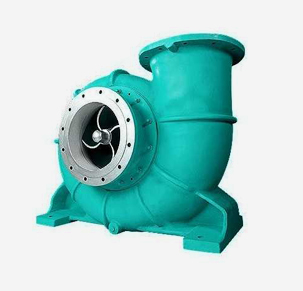TEL:
+86 13120555503
English
- Afrikaans
- Albanian
- Amharic
- Arabic
- Armenian
- Azerbaijani
- Basque
- Belarusian
- Bengali
- Bosnian
- Bulgarian
- Catalan
- Cebuano
- Corsican
- Croatian
- Czech
- Danish
- Dutch
- English
- Esperanto
- Estonian
- Finnish
- French
- Frisian
- Galician
- Georgian
- German
- Greek
- Gujarati
- Haitian Creole
- hausa
- hawaiian
- Hebrew
- Hindi
- Miao
- Hungarian
- Icelandic
- igbo
- Indonesian
- irish
- Italian
- Japanese
- Javanese
- Kannada
- kazakh
- Khmer
- Rwandese
- Korean
- Kurdish
- Kyrgyz
- Lao
- Latin
- Latvian
- Lithuanian
- Luxembourgish
- Macedonian
- Malgashi
- Malay
- Malayalam
- Maltese
- Maori
- Marathi
- Mongolian
- Myanmar
- Nepali
- Norwegian
- Norwegian
- Occitan
- Pashto
- Persian
- Polish
- Portuguese
- Punjabi
- Romanian
- Russian
- Samoan
- Scottish Gaelic
- Serbian
- Sesotho
- Shona
- Sindhi
- Sinhala
- Slovak
- Slovenian
- Somali
- Spanish
- Sundanese
- Swahili
- Swedish
- Tagalog
- Tajik
- Tamil
- Tatar
- Telugu
- Thai
- Turkish
- Turkmen
- Ukrainian
- Urdu
- Uighur
- Uzbek
- Vietnamese
- Welsh
- Bantu
- Yiddish
- Yoruba
- Zulu
Telephone: +86 13120555503
Email: frank@cypump.com
Feb . 14, 2025 00:05 Back to list
pipeline hydrostatic test pump
Pipeline hydrostatic test pumps play a crucial role in ensuring the integrity and safety of fluid transportation systems. These pumps are vital for conducting hydrostatic tests, which are essential procedures for assessing the strength and leak-resistance of pipelines before they are put into operational use. Understanding the significance and functionality of these pumps can provide invaluable insights into maintaining and improving pipeline safety standards.
Professional users frequently opt for brands known for their authoritative presence in the industrial equipment sector. This choice assures that the pumps they deploy meet established safety regulation standards and have a trusted track record in the field. Trusted suppliers often offer rigorous testing and calibration services, along with detailed maintenance guidance, to ensure the pumps continue to deliver optimal performance over time. The trustworthiness of a hydrostatic test pump is further reinforced by its compliance with industry standards and certifications, ensuring it meets safety and performance requirements. For those managing pipelines, using certified equipment not only ensures compliance with legal and safety standards but also contributes to the broader reputation of the operating firm within the industry. For an organisation seeking to enhance operational safety and efficiency, investing in a reliable pipeline hydrostatic test pump is indispensable. These pumps not only safeguard against unforeseen failures but also support the sustainability of operations through the reduction of waste and prevention of environmental harm. By integrating expert knowledge, adhering to authoritative standards, and ensuring reliable performance through trustworthy equipment, operators can maintain and even elevate their commitment to safety and quality in pipeline management. In summary, pipeline hydrostatic test pumps are fundamental tools in modern pipeline integrity management. They support the industry by providing a reliable means to ensure that pipelines are safe, fit for service, and capable of meeting the demands of their operational environment. Through authoritative engineering, expert design, and trusted reliability, these pumps secure their place as indispensable assets in the realm of pipeline safety and maintenance.


Professional users frequently opt for brands known for their authoritative presence in the industrial equipment sector. This choice assures that the pumps they deploy meet established safety regulation standards and have a trusted track record in the field. Trusted suppliers often offer rigorous testing and calibration services, along with detailed maintenance guidance, to ensure the pumps continue to deliver optimal performance over time. The trustworthiness of a hydrostatic test pump is further reinforced by its compliance with industry standards and certifications, ensuring it meets safety and performance requirements. For those managing pipelines, using certified equipment not only ensures compliance with legal and safety standards but also contributes to the broader reputation of the operating firm within the industry. For an organisation seeking to enhance operational safety and efficiency, investing in a reliable pipeline hydrostatic test pump is indispensable. These pumps not only safeguard against unforeseen failures but also support the sustainability of operations through the reduction of waste and prevention of environmental harm. By integrating expert knowledge, adhering to authoritative standards, and ensuring reliable performance through trustworthy equipment, operators can maintain and even elevate their commitment to safety and quality in pipeline management. In summary, pipeline hydrostatic test pumps are fundamental tools in modern pipeline integrity management. They support the industry by providing a reliable means to ensure that pipelines are safe, fit for service, and capable of meeting the demands of their operational environment. Through authoritative engineering, expert design, and trusted reliability, these pumps secure their place as indispensable assets in the realm of pipeline safety and maintenance.
Share
Latest news
-
Heavy-Duty Mining Sludge Pumps - Wear-Resistant Slurry Handling
NewsAug.02,2025
-
Horizontal Split Case Pump with GPT-4 Turbo | High Efficiency
NewsAug.01,2025
-
ISG Series Pipeline Pump - Chi Yuan Pumps | High Efficiency, Durable Design
NewsAug.01,2025
-
Advanced Flue Gas Desulfurization Pump with GPT-4 Turbo | Durable & Efficient
NewsJul.31,2025
-
ISG Series Vertical Pipeline Pump - Chi Yuan Pumps | Advanced Hydraulic Design&Durable Construction
NewsJul.31,2025
-
ISG Series Vertical Pipeline Pump - Chi Yuan Pumps | Energy Efficient & Low Noise
NewsJul.31,2025










